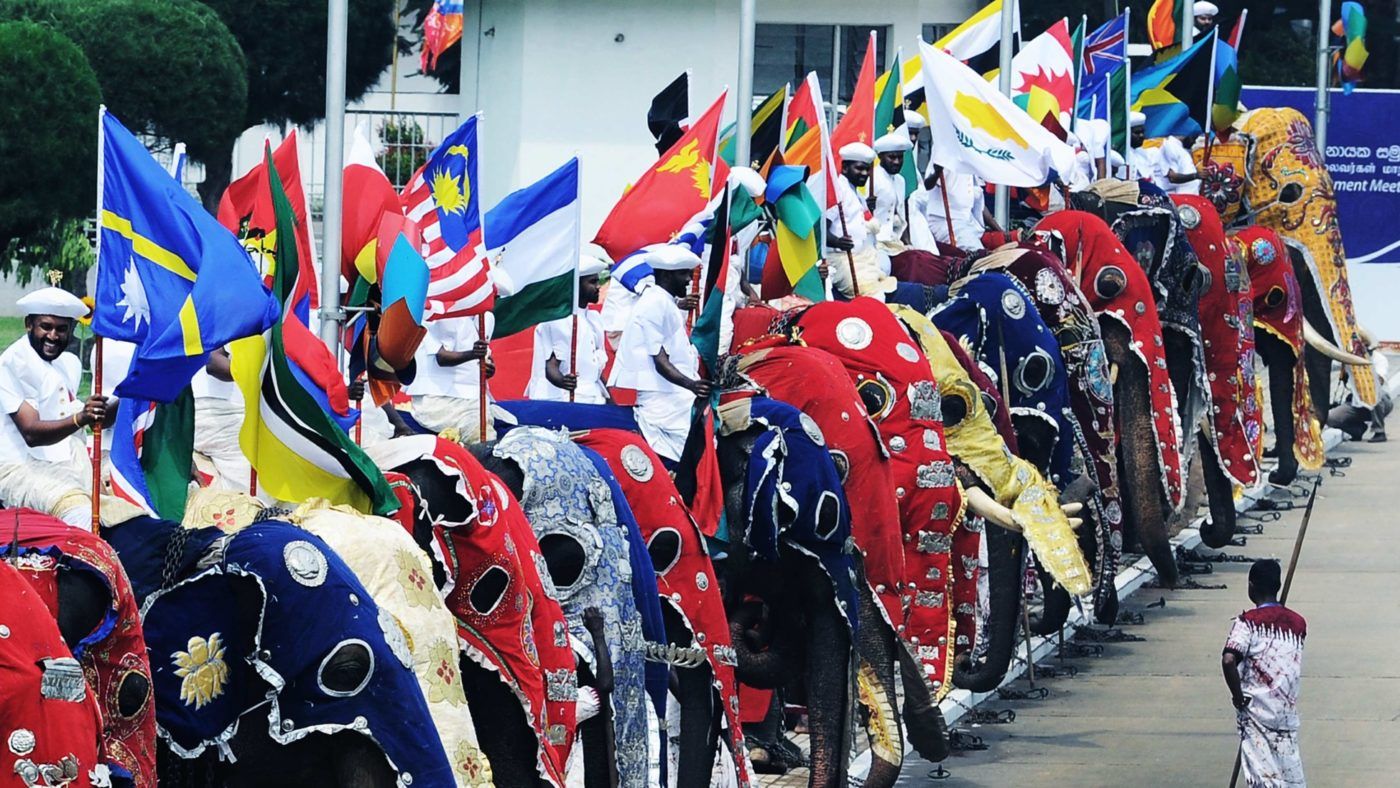In the run-up to Commonwealth Day, on March 13, the Commonwealth Enterprise and Investment Council is to host a Commonwealth Trade Ministers’ meeting. More than 30 ministers from around the Commonwealth are expected to attend, alongside around 60 business leaders.
The Times is reporting that an accord is expected to be signed at the meeting, paving the way for a free-trade deal between Canada, Australia, New Zealand and the UK (the so-called CANZUK group) after Brexit. In a second tier of negotiations, the summit is also hoping to promote greater trade liberalisation (though probably not a single joint-trade deal) for other important Commonwealth members such as South Africa, Nigeria and India.
The Commonwealth consists of four key groups. First there are the CANZUK nations – all developed economies with Westminster parliamentary systems, Magna Carta-based constitutional assumption, the same Queen, fairly similar GDP per capita, and similar levels of national security (eg similar murder rates).
Then there are the Queen’s Realms. These include, alongside the CANZUK countries, a further 12 states that still retain the Queen as monarch, including Jamaica, Antigua and Barbuda, Belize, Papua New Guinea, Saint Kitts and Nevis, Saint Vincent and the Grenadines, Tuvalu, Barbados, Grenada, Solomon Islands, Saint Lucia, and the Bahamas.
Although their GDP per capita is notably lower than the CANZUK group’s, it is nonetheless higher than many EU Member States. For example, in 2015 the Bahamas had a GDP per capita of US$22,900 versus the UK’s US$43,700, Australia’s $56,300, Poland’s US$12,500 and Bulgaria’s US$6,800. On the other hand, national murder rates for some in this group are markedly higher than in the CANZUK group. While the UK has 0.9 murders per 100,000 people, Jamaica has 36.1 and the Bahamas has 29.8.
A third group consists of the developed-economy independent Commonwealth countries. These are members that no longer use the Queen, but do have fairly high GDP per capita. They include Singapore (US$52,900), Cyprus (US$23,000) and Malta (US$33,000).
The fourth group is of those Commonwealth members no longer using the Queen and who have less developed economies. This group includes India (US$1,600), Nigeria (US$2,600), and South Africa (US$5,700). The murder rate for South Africa is notably fairly high (though at 33 no worse than Jamaica or the Bahamas). Nigeria is intermediate at 10.3 (about the same as Barbados). India, contrary to much popular discussion, has an internationally low murder rate of 3.2.
The first thing to note is that the nature of the relationship the UK seeks with each tier will be different. The CANZUK group, for example, will make very natural and automatic partners, with similar cultures, levels of economic development, similarly ordered societies and regulatory and legal assumptions. Alongside existing security partnerships and perhaps new defence agreements, trade deals should be pretty straightforward – as should agreements on mutual migration.
Within the EU, for example, the UK has regarded migration as a matter of “whom we let in”. There are around twice as many EU citizens in the UK as UK citizens in the EU27, with France, Ireland and Spain alone accounting for a half of the UK citizens, and fewer than 7,000 UK citizens in Romania and Bulgaria combined.
Yet there are more UK ex-pats living in Canada, Australia and New Zealand than in the whole EU27 — indeed there are three times as many UK citizens in the CANZ countries as in the US. Relatively free migration within CANZUK would be every bit as much about where UK citizens would go, as who would come to the UK. That is presumably partly why UK voters are heavily in favour of free movement within CANZUK.
Outside the CANZUK group, things are both trickier and more diverse. That means we are unlikely to be able to have one comprehensive deal across the Commonwealth.
As we have seen, some countries are much more violent than ours or have much lower GDP per capita. In either of these cases, free movement is unlikely to be viable. In other cases (eg Singapore) differences in legal systems and regulatory assumptions mean that trade deals are unlikely to be straightforwardly integrated with those in the simpler CANZUK group.
In some cases, we may have specific concerns about labour market practices (eg the role of women in society, child labour or the access of religious or ethnic minorities to the labour market) that could make comprehensive trade deals trickier. We may not want to recognise, in a trade deal, practices we might want to condemn on another occasion. We shouldn’t think we always need a trade deal in order to trade.
We should definitely be pursuing free trade agreements with as much of the Commonwealth as we can. But we should recognise its limitations.
India, for example, will have no interest in any deep EU-style geopolitical partnership with the UK, for obvious historical reasons. Cyprus and Malta are EU members, so unable to make separate trade deals with us. Malawi has a GDP per capita of just US$380, less than one hundredth that of Singapore or Australia. Jamaica, Belize, St Kitts and South Africa have the 6, 7, 8 and 9 highest murder rates in the world.
So, splendid — let’s chat. If the Commonwealth provides a diplomatic way in to a CANZUK accord that will eventually far surpass the Commonwealth in depth and intimacy and might one day be extended to include others of the Queen’s Realms, let’s use that way in. If we can get a trade deal sorted quickly with Singapore, let’s do that as well. If India will talk to us at all, let’s listen.
But let’s not delay these other deals in the vague hope of some shallow pan-Commonwealth arrangement.


